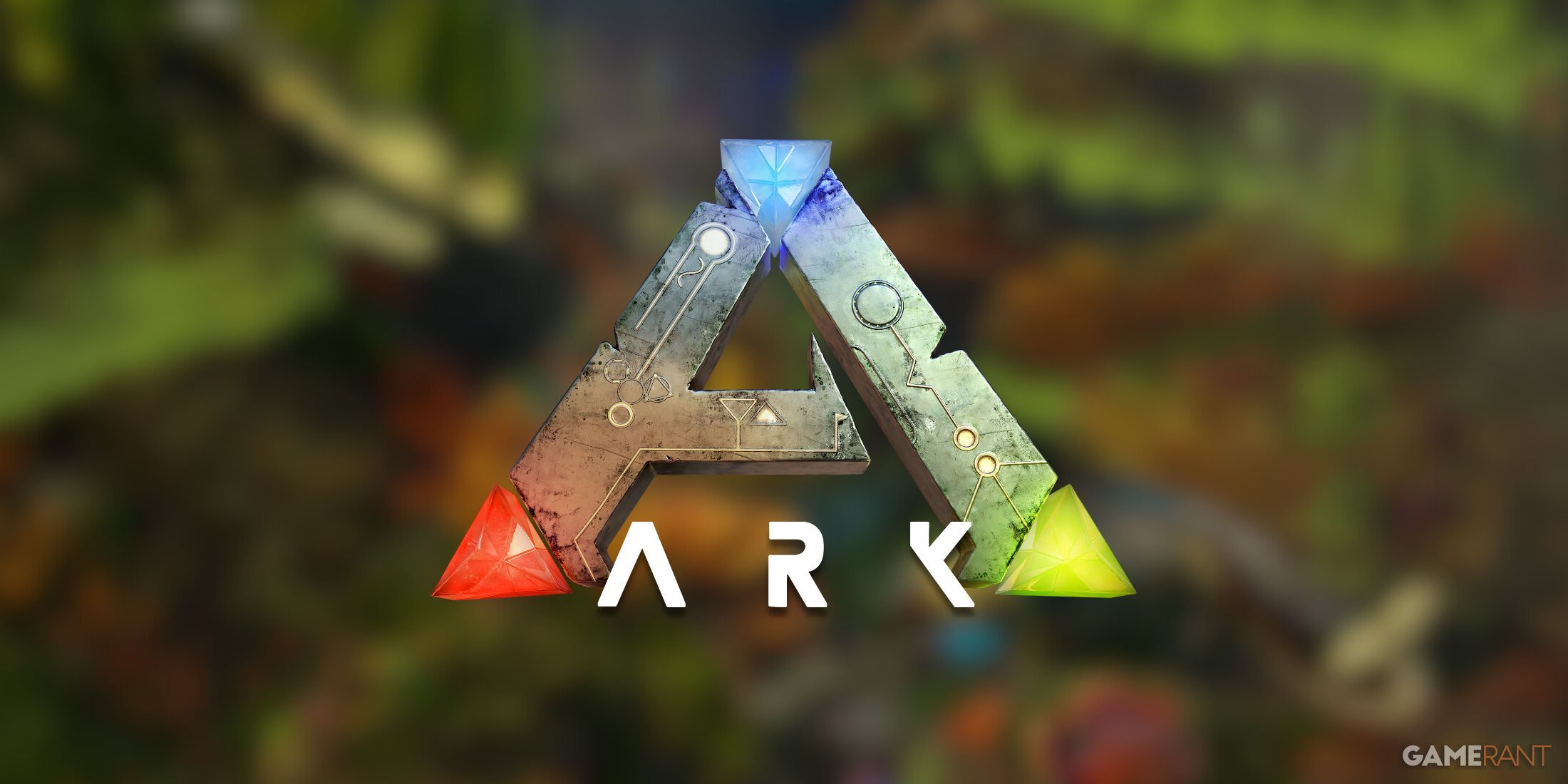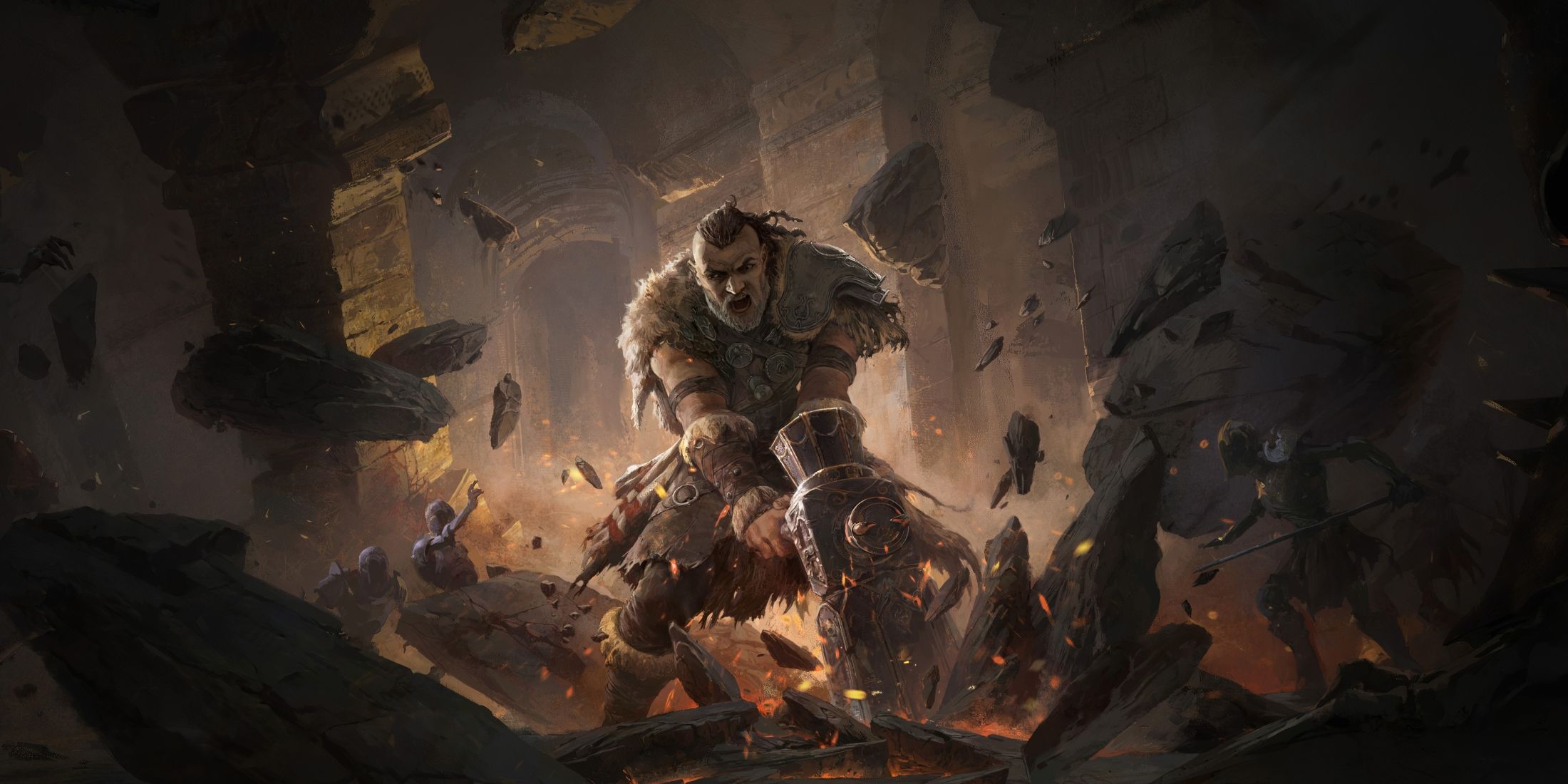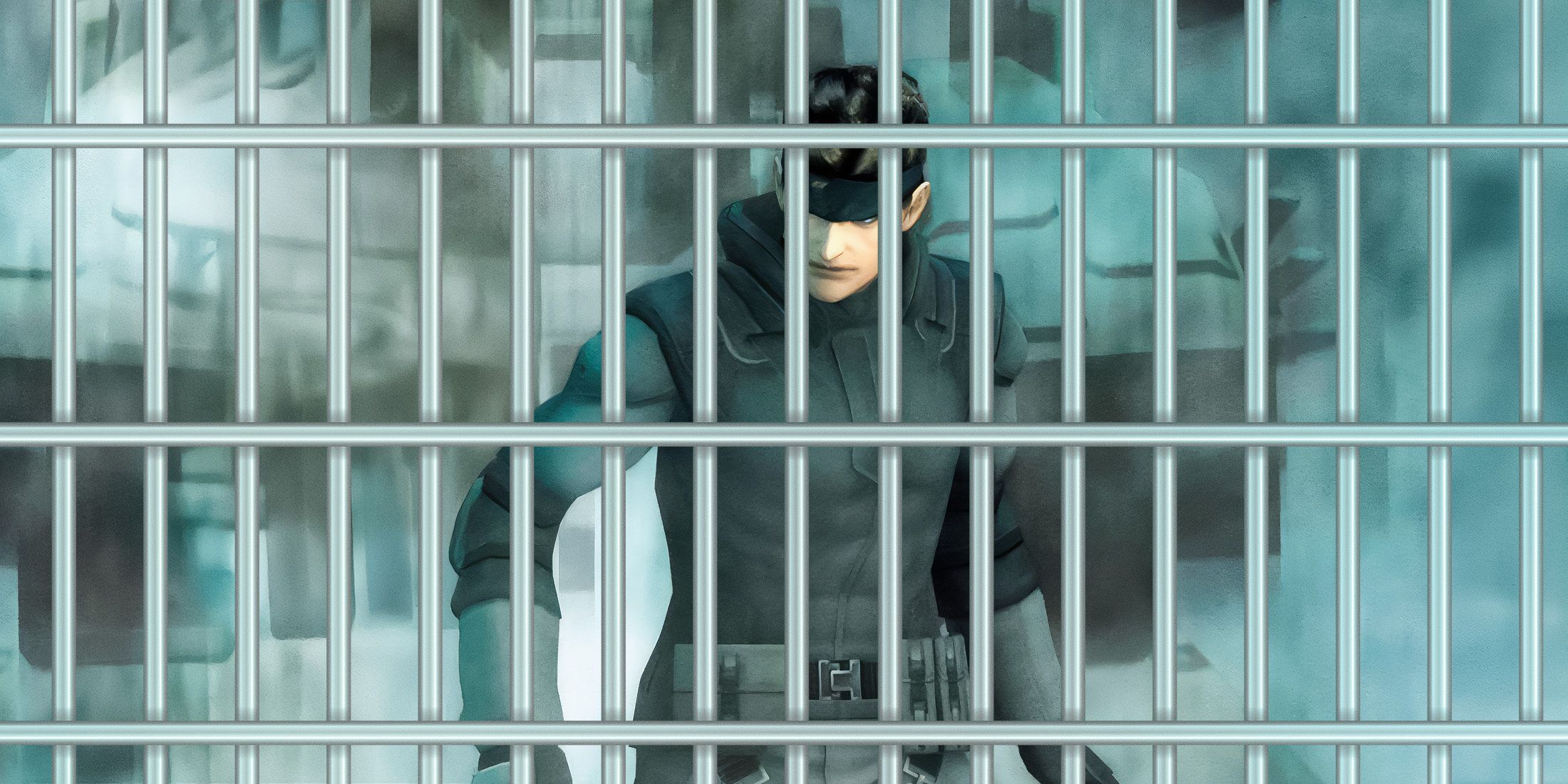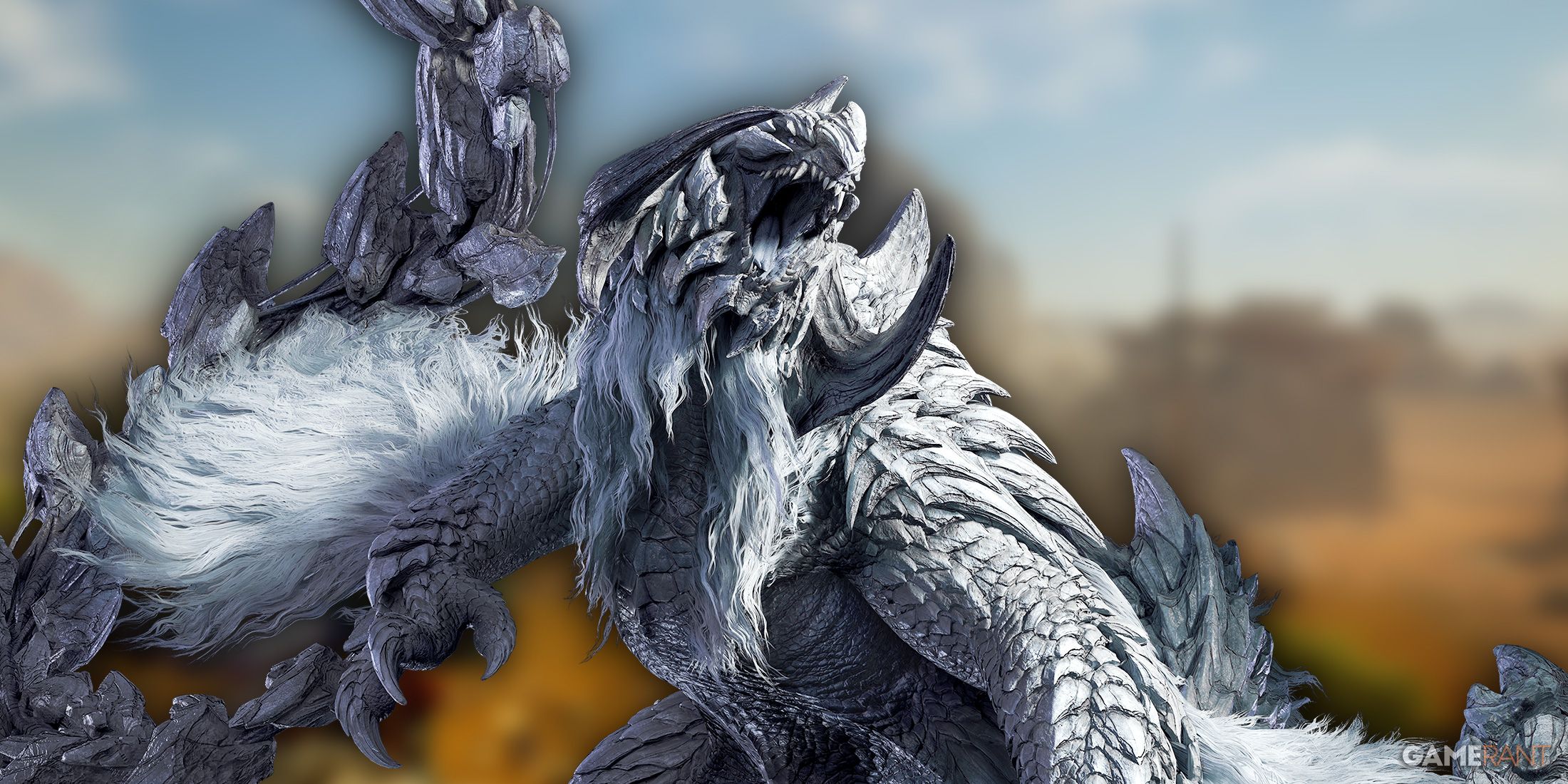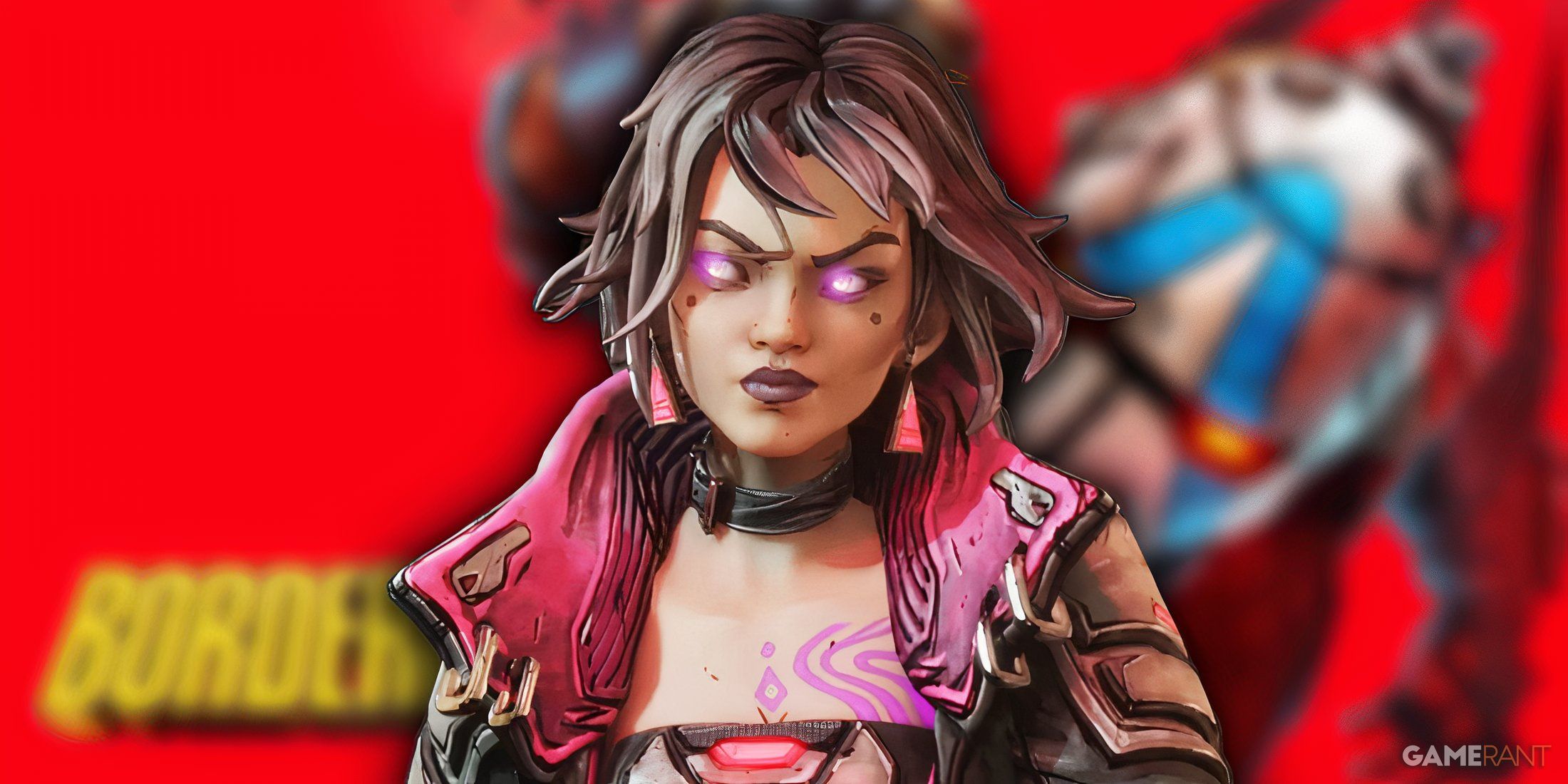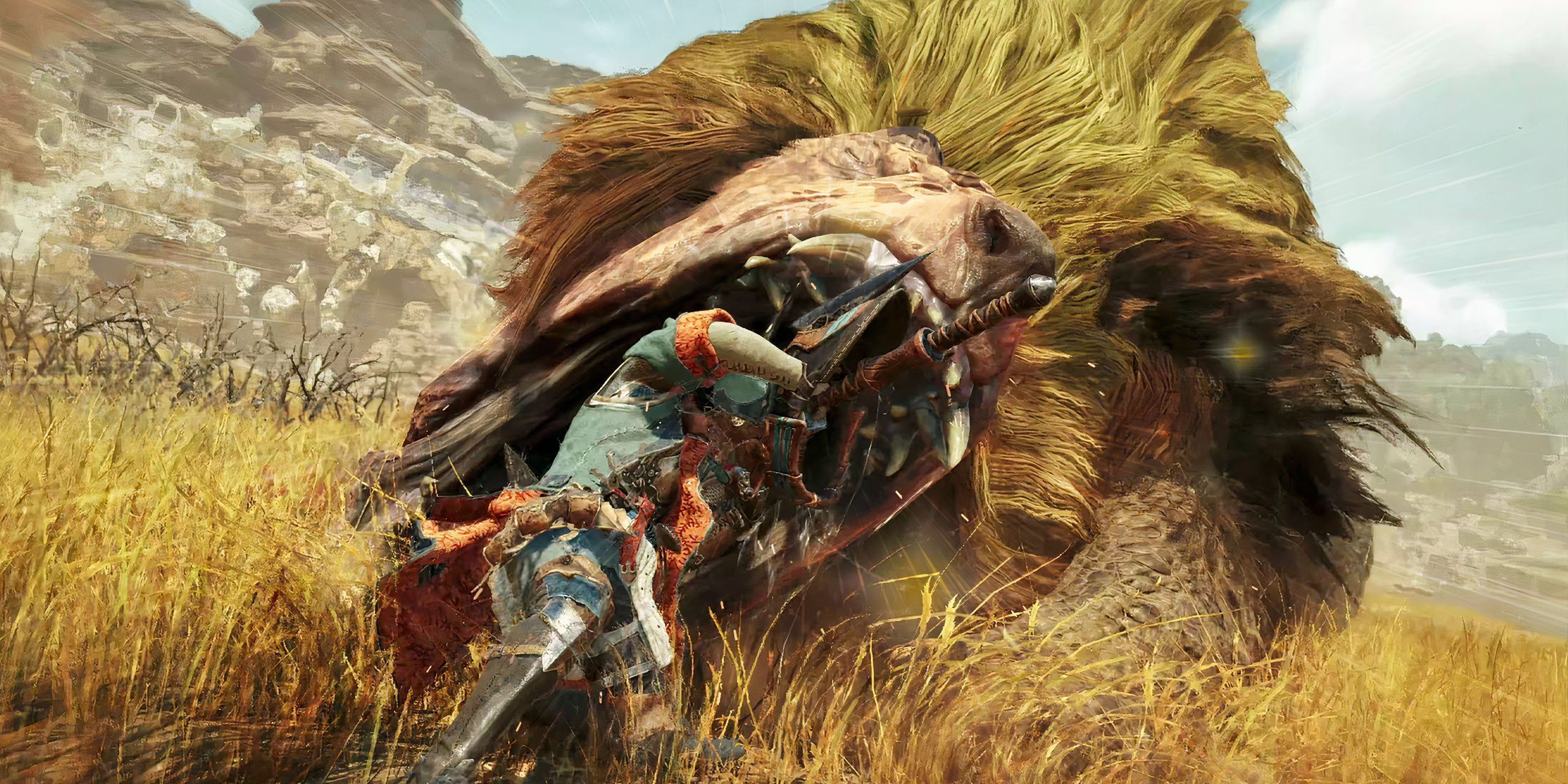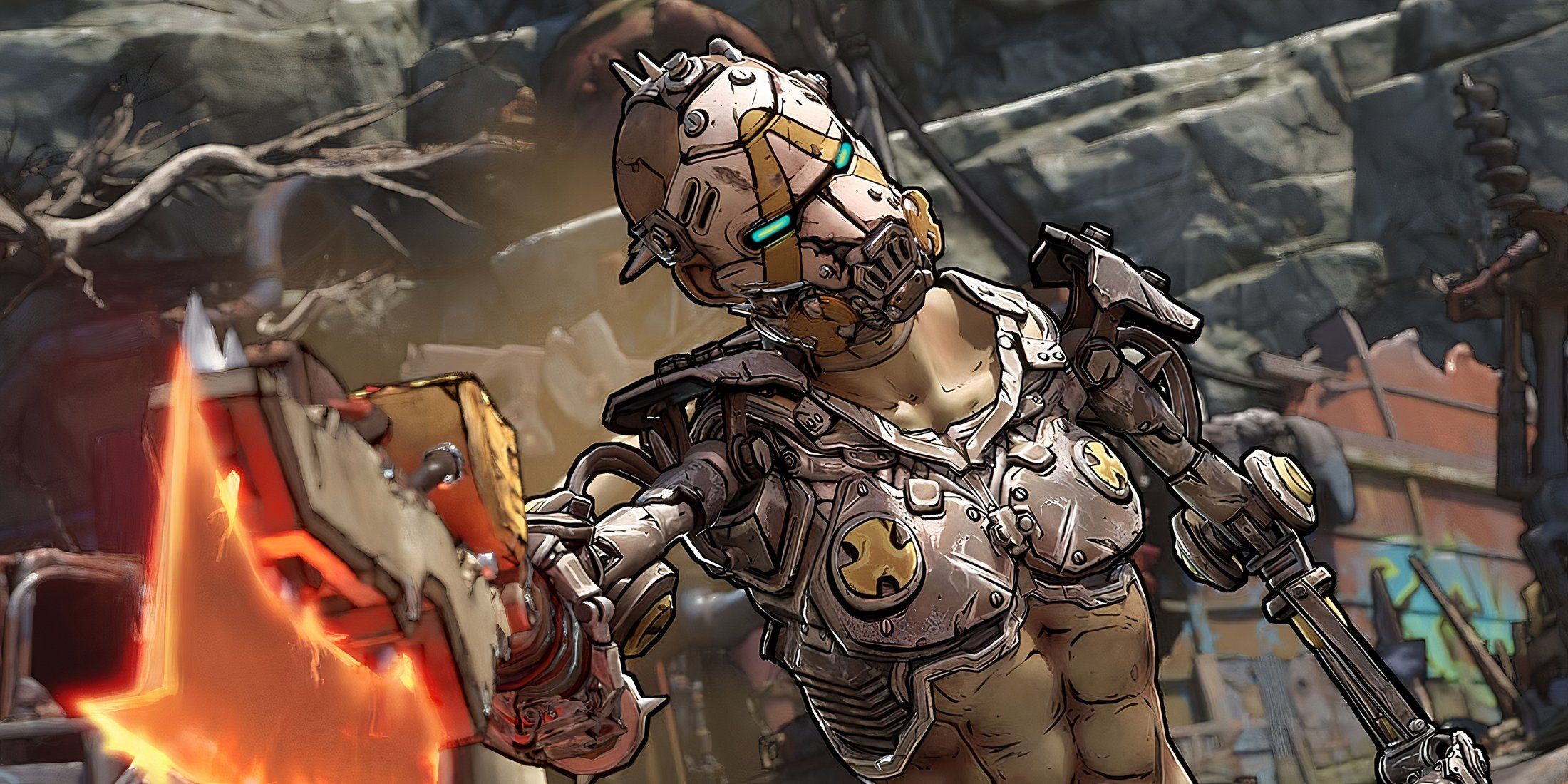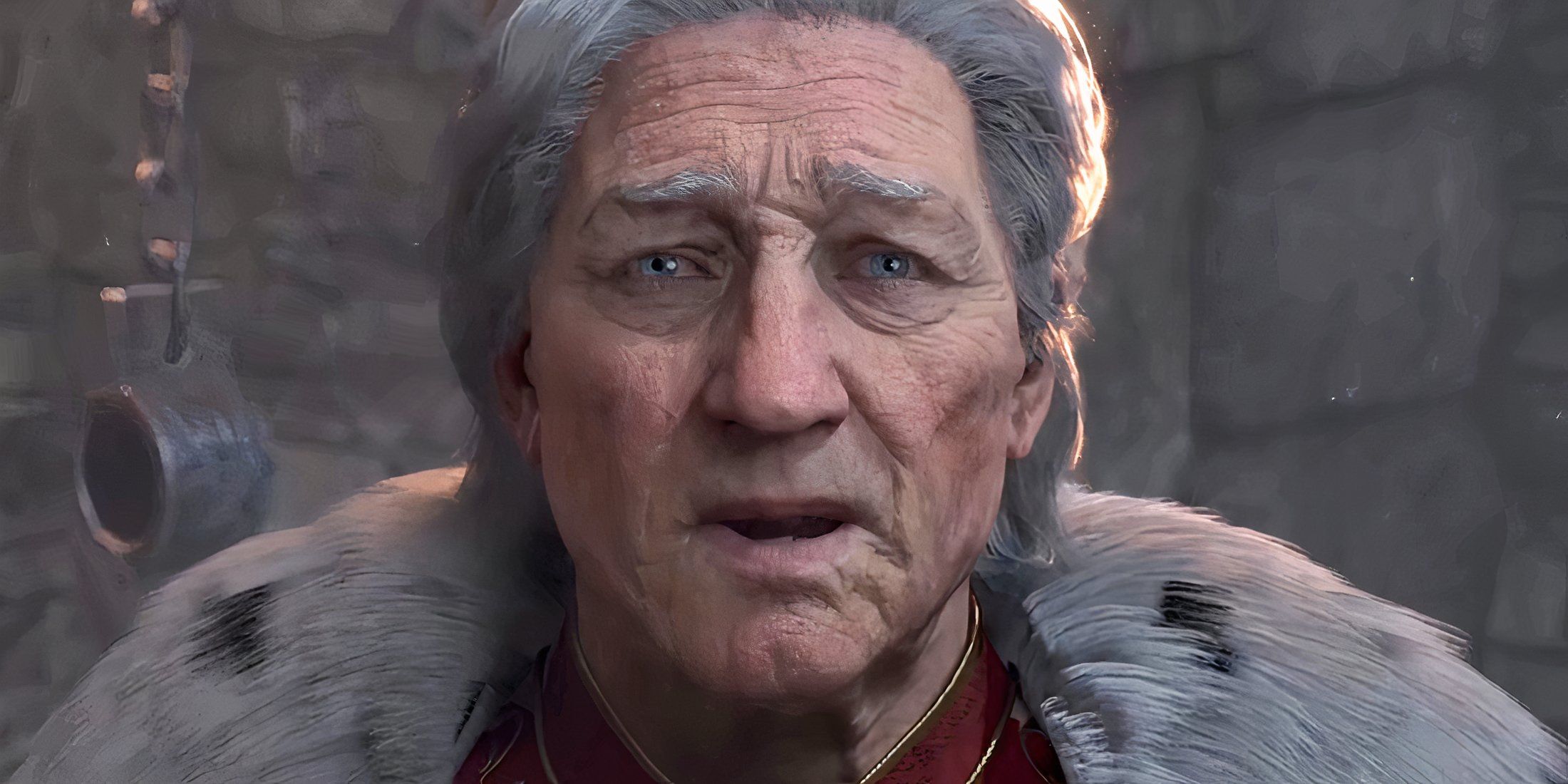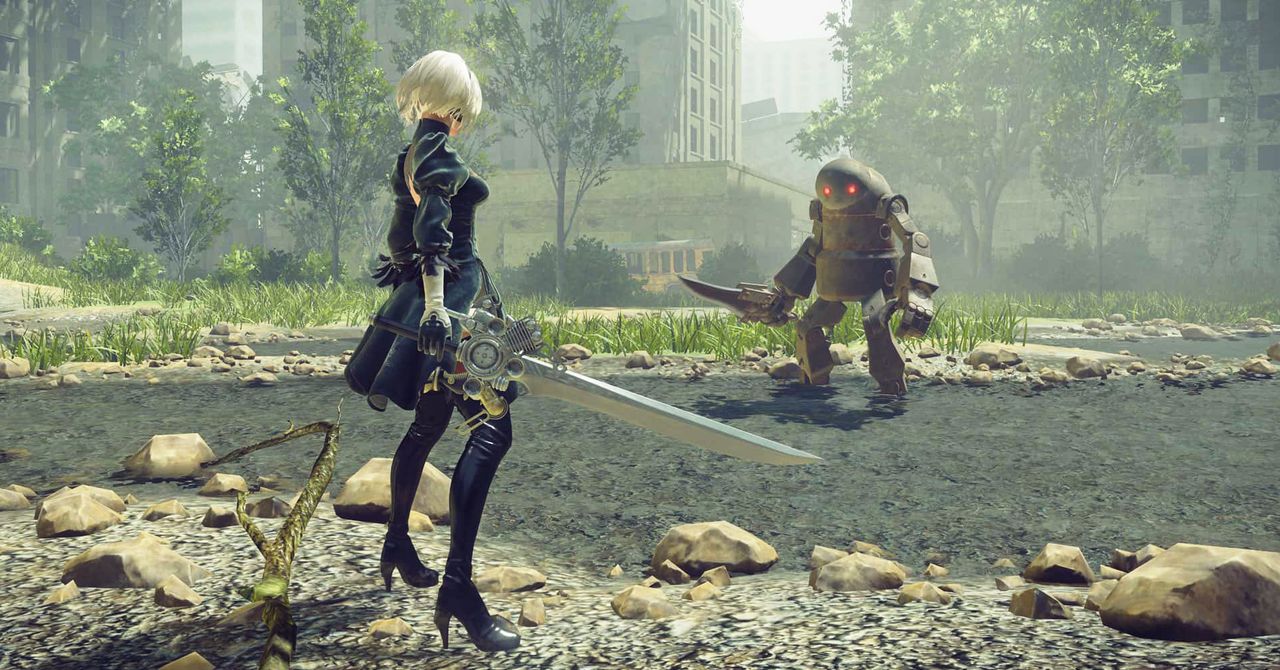
Late in Nier: Automata's runtime, the game takes an unexpected break from sci-fi action to share the backstory of two minor characters. It does so by turning itself briefly into a text adventure, the sort of thing you'd find in Twine, that tells you how these two came to be where they are. The pain and persecution they've been through; how they held onto each other through it. And then, at the end of the story, if you make a certain choice, the narrator sums up her journey:
"I won't stop. No one stops."
In that moment, Nier: Automata suggests that the experience of these minor characters, the suffering that gives way to perseverance and then, cruelly, even more suffering, isn't isolated to them, or the other unlucky members of the main cast. Instead, the game posits that this experience is a cycle. A universal one, catching everyone and everything in it. We suffer, and we go on, because have to. No one stops.
Nier: Automata is obsessed with cycles, and with breaking them. The game's genius lies in interrogating every element of itself, from the most cliched videogame trope to the most virtuosic narrative flourish, and pushing that obsession onto the audience. Nier: Automata is a series of resonant frequencies, one amplifying the other until everything is bathed in its rogue transmission.
This entire article could be spent recounting the fine details of the plot of Nier: Automata, which builds upon the stories told in Yoko Taro's previous games, but by way of simple summary: In the year 11,945, an army of androids created by humans fight an army of toy-like machines created by alien invaders for control of Earth, with what remains of the human race cordoned off on the moon. This war has gone on for centuries, and shows no sign of ending. For the androids of Yorha, a group of special forces who serve as the game's viewpoint characters, war—and death—is everything. The only thing.
At the end of the game's prologue, our protagonist, 2B, dies alongside her field partner, 9S. And then they're resurrected, their minds uploaded into new bodies, and sent back out into the fight against the machines. Not even total annihilation is an escape from what 2B calls, in her opening narration, "a never-ending spiral of life and death."
Nier: Automata plays like a traditional action role-playing game, with a combat system—courtesy of the veterans at Platinum Games—that gives depth and grace to a deserving title. Taro and his team's games are always thoughtful, but often broken and underfunded. Automata is neither, and it plays beautifully, and yet its gameplay flourishes further emphasize the cyclical purgatory of the life of the androids. Violence is routine, a means of filling up time, growing stronger, and even entertainment. But violence, both as game mechanic and as the core of life on Nier's earth, is drained of meaning by its inevitable repetition: War is background noise, ceaselessly droning toward tragedies that are doomed to repeat themselves over and over again, as androids and machines struggle with a growing degree of self-awareness they neither asked for nor know precisely what to do with.
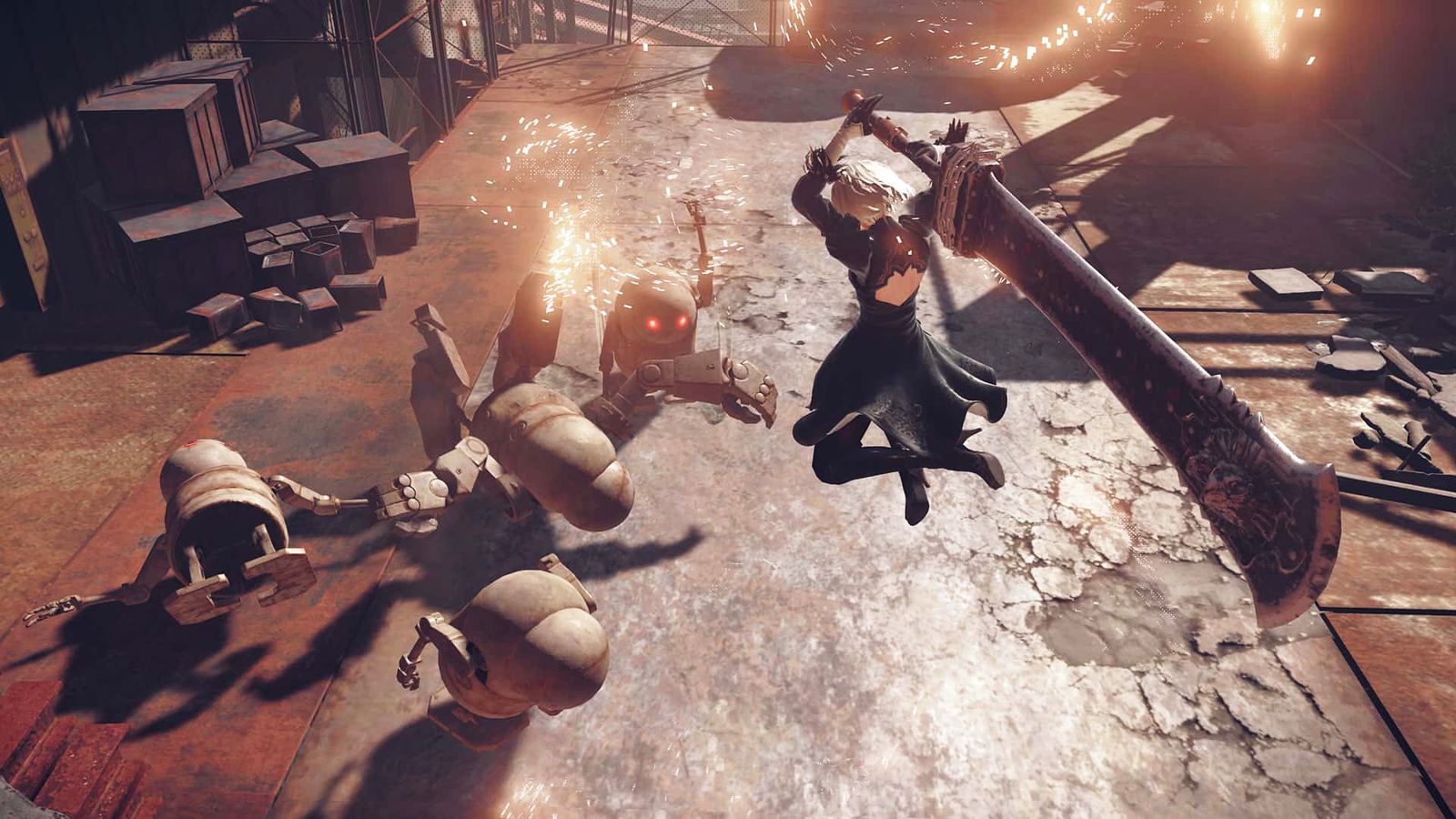 Platinum Games
Platinum GamesHow do you live when your life's path is predetermined? How do you possibly make meaning out of your existence within that kind of inevitability? Nier: Automata confronts that question with the somber gravity of tragedy, and the trickster's grin of a game designer in his element. If Nier: Automata wants to highlight the cycles its characters are trapped in, it also wants to highlight the way those cycles can be broken, made sense of, or subverted. Being alive might mean that we're all trapped. But it doesn't mean we have to play along nicely.
The game pulls this tension off by constantly undercutting and transforming its own play. One moment, the game will be precisely what you signed up for: a third-person action game about an android with a blindfold and a big sword. Then, a moment later, the game is a 2D bullet-hell jet-plane shooter. Then that jet plane transforms into a mecha. Then the android jumps out of that mecha again, you hack and slash for a little while longer, and the camera switches again as you turn a hallway. Now it's a 2D platformer. Later, the game throws hacking minigames at you in the form of twin-stick shooting straight out of Geometry Wars. One segment is reminiscent of a 2D Castlevania, as you fight and climb through a layered, ruined castle full of machine lifeforms. Another resembles an old-school fighting game. I could go on and on.

